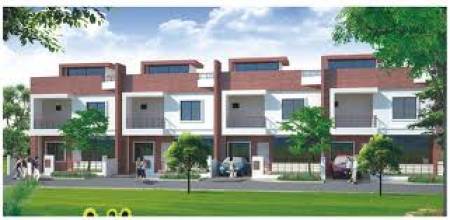By: Ravi Sinha
 Track2Realty Exclusive: The Gujarat real estate has by and large reasons to feel satisfied with its better-than-national average performance during the year 2013. It would be safe to maintain that the property market in the state has weathered the slowdown blues better than many other matured property markets across the country and the developers are better off now than in 2009. As per rough estimates 50 per cent of top companies in the state have improved on their debt servicing while 30 per cent will see a fall in debt from next fiscal. Analysts claim that channel checks done by them in different markets suggest that sales have not plummeted in a meaningful way across the micro-markets, even though there is stress both at the buyers’ as well as developers’ level.
Track2Realty Exclusive: The Gujarat real estate has by and large reasons to feel satisfied with its better-than-national average performance during the year 2013. It would be safe to maintain that the property market in the state has weathered the slowdown blues better than many other matured property markets across the country and the developers are better off now than in 2009. As per rough estimates 50 per cent of top companies in the state have improved on their debt servicing while 30 per cent will see a fall in debt from next fiscal. Analysts claim that channel checks done by them in different markets suggest that sales have not plummeted in a meaningful way across the micro-markets, even though there is stress both at the buyers’ as well as developers’ level.
Analysts believe with better cash management strategies of leading developers companies are in a better position now than before. Sanjay Dutt, Executive Director, Cushman & Wakefiled agrees that the worst is getting over but it would still take six to twelve months for things to turn around. “The window of opportunity to buy at a good price is between now and the next monsoon,” he says. Buyers are hoping that political uncertainty will end with elections next year and with that the economy will also start to look up.
Manan Choksi, Regional Owner RE/MAX Ahmedabad has a different view point when he says that ever since the new GDCR (General Development and Control Regulation) of Ahmedabad–Vadodara have been released, the primary sale market has stagnated. The transactions are happening in resale and rental segment.
“There are a slew of launches and hopefully the market will move in 2014. Yes, it is about time that investors return to the market as it is a good price to buy real estate as of now. In Gujarat we have seen a lot of companies from out of state entering to do various types of businesses. This has increased the property consumption. The investors are bargain hunting right now for a distressed builder to sell at lower than market prices,” says Choksi.
This raises a fundamental question as to whether over these turbulent years, real estate has learnt its lesson from past mistakes and developers are delivering projects on time. Scale of most listed companies have improved over the years even if it has come at the cost of higher debt. Analysts believe increasing debt for growing operations is healthy provided operational cash flows remain positive. Moreover, as the key markets are getting saturated the companies are now utilizing cash to deleverage and acquire more projects in newer markets. This helps companies diversify and spread risk while the boundaries of property market in the cities like Ahmedabad and Vadodara are stretching to outskirts.
However, there are some real issues to deal with that are likely to impact real estate market in 2014. Many of the issue are inter-related and impact the economy in general as well. The idea is to take a broad view and provide a context and perspective that can assist in making informed decisions in the sector.
With the State Chief Minister Narendra Modi being the Prime Ministerial candidate, all eyes in the Gujarat market are on the General Elections in 2014 as it affects the sector in various ways. The elections are going to aggravate the overall slowdown in economy, delayed approval processes, affect buyers’ psyche but, above all, divert the black money from the sector to the political process. The prospect of an unstable government scares the sector as it would amount to all legitimate demands of the sector put on the back burner in the absence of consensus.
Regulator Bill is something that everyone within the built environment of the business, including the buyers, has been waiting for long. However, the prospect of a fractured mandate makes the future of Regulator Bill hang in balance as even if it is cleared in 2014, the lack of political consensus and centre & state imbroglio is expected to keep the regulation and reforms waiting for quite some time. Of course, the endeavour to create a consensus over the Regulator’s jurisdiction and draconian powers would be one of the major talking points of the year ahead. Many states, including Gujarat, have certain reservations with the provisions of the bill.
After the Regulator Bill, Land Acquisition Bill has weathered the most resistance by the developers and the year ahead may see some industry/political mobilisation once it becomes a law. With land being a State subject and the election year expected to bring around political uncertainty the developers with deep pockets may get into land purchase before the new legislation is in place. Those who cannot afford land bank will still have an excuse of price hike in the name of land getting costlier ahead. Will Gujarat Government’s industry friendly policies translate into states getting more investment post this Act is something that keep the sector curious.
The new RBI Governor has made it clear that he intends to tame the inflation and check the slide of Indian currency than infuse excess liquidity in the market and appease the home buyers and the developers. The year ahead promises to have no change in this stance and the sector will have reasons to feel the heat before every quarterly monetary policy review by the RBI. Unless there is a new Government with strong intentions to safeguard the interests of real estate, there seem to be no respite for the sector; chances of which are very less.
Probably the only hope of the cash starved sector is the SEBI’s endeavour to revive the Real Estate Investment Trust (REIT). When the banks are not willing to lend to the sector, PE funds deserting and capital market pretty scary, REIT is the only silver lining for the cloudy financial weather of the developers. The optimism also stems from the fact that even the big-ticket private equity players who want to invest in the Indian realty but are apprehensive of opaque market are now planning to set up REIT. This is also good news for the retail investors since the real estate continues to be an attractive investment instrument, even for those who can not afford to buy properties. REIT is expected to generate good revenue from the retail investors of Gujarat. Will this help the Gujarat-based developers is something that the year ahead will reveal.
FDI in retail was supposed to be a game changer for the commercial real estate, but has hardly made any difference in 2013. The government provided the much awaited clarity on 50 per cent investments to be made in the back-end infrastructure from the FDI being brought in by international multi-brand retailers. Analysts maintain once macro-economy stabilises and new government is in office, this may spur international retailers who were keen on operating in India, but were looking to understand the restrictions imposed by the government on their investments and operations. Gujarat emerging as a mega commercial hub, the developers have also set their eyes on more commercial projects in the year ahead.





